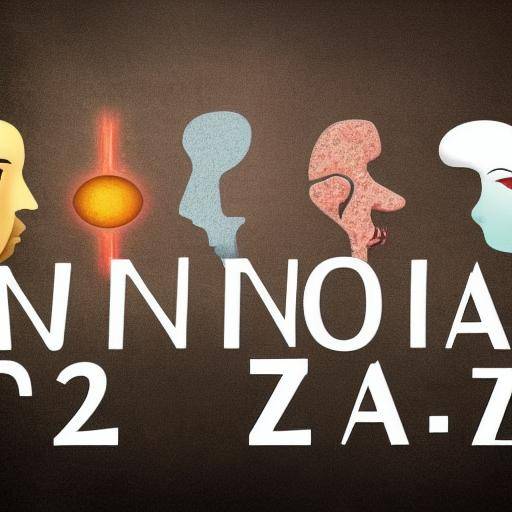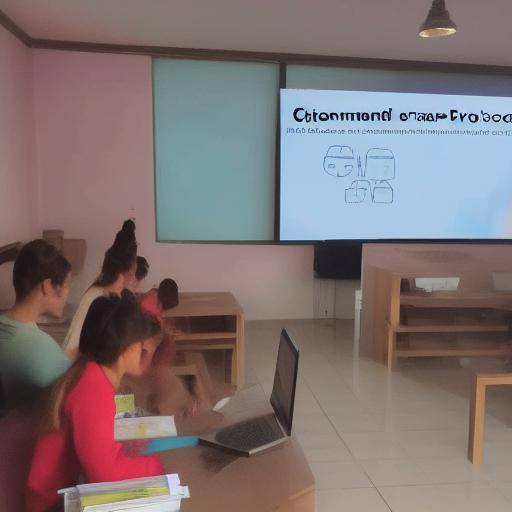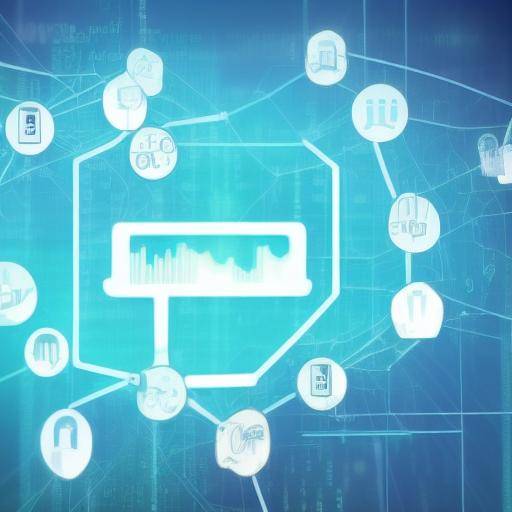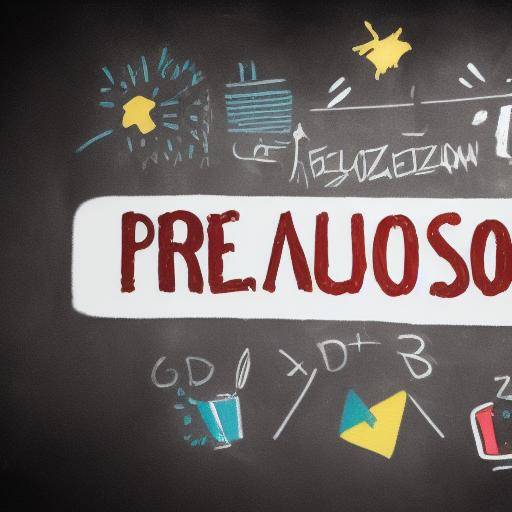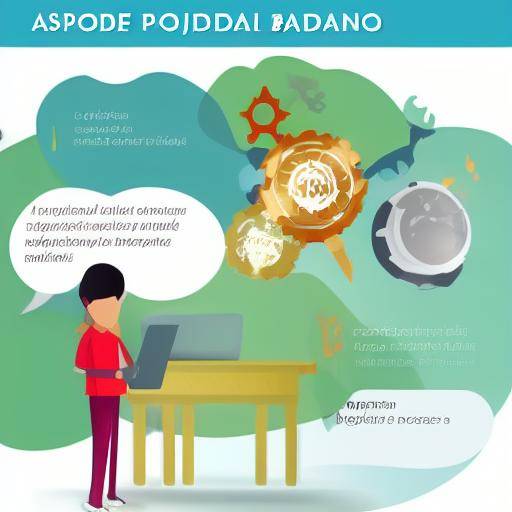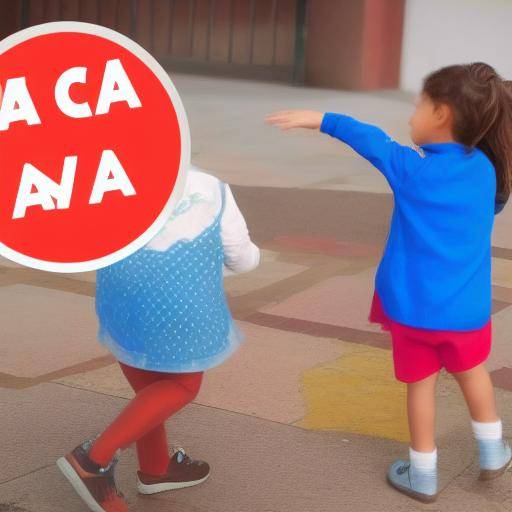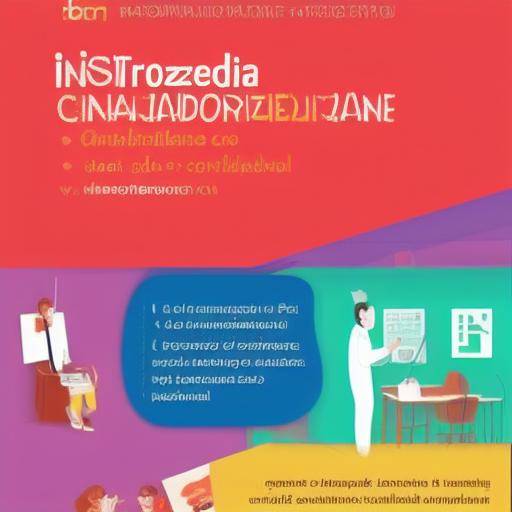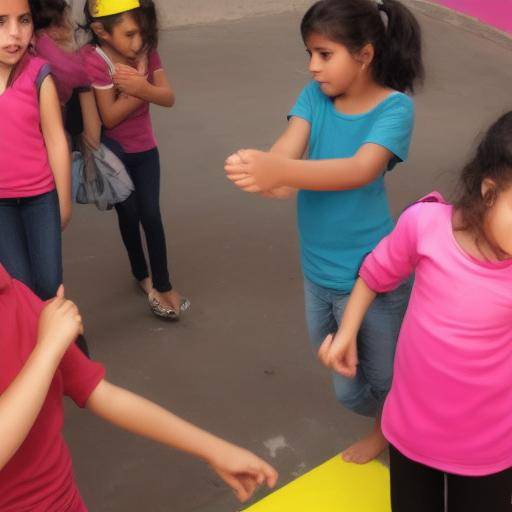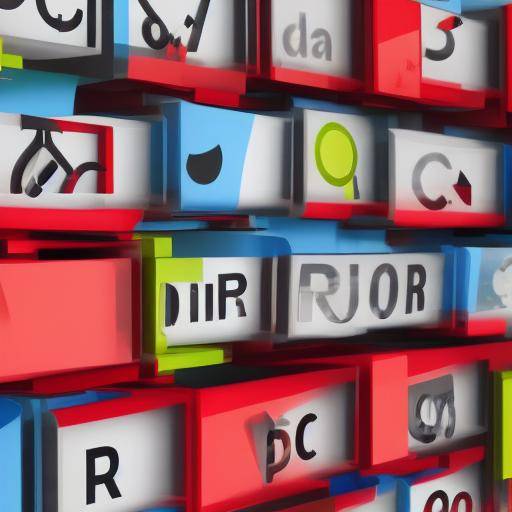
Metacognition, or the process of thinking about our own thinking, is a fascinating and crucial theme in the world of learning. This article will explore in detail the impact of metacognition on the learning process, from its origins to future trends. We will find out how metacognition influences the way we learn, remember and solve problems, providing a unique vision of how we can improve our learning and understanding methods.
Introduction
Metacognition has been the subject of study and interest in the educational and psychological field for decades. Its importance lies in how it influences how people acquire knowledge, process information and apply learning strategies. In this article, we will explore in depth the meaning of metacognition, its impact on learning and how your understanding can improve our educational methods.
History and Background
Metacognition has long been a topic of interest. Its roots go back to ancient Greece, where philosophers like Socrates and Plato already reflected on the importance of self-knowledge. However, the term "metacognition" itself was coined in the 1970s by the psychologist John Flavell, who defined it as knowledge and control over the cognitive processes themselves.
Over the years, metacognition has evolved, and has become a crucial area of study in cognitive psychology and education. Today, its impact extends to fields as diverse as neuroscience, pedagogy and artificial intelligence, demonstrating its relevance in understanding and improving the learning process.
Deep analysis
Metacognition has a significant impact on the learning process. By understanding and regulating our own cognitive processes, we can improve the way we acquire and process new information. Studies have shown that students who are aware of their learning strategies tend to have higher academic performance, showing greater competition to solve problems and better adaptability to new situations.
It is essential to understand that metacognition involves not only the knowledge of our own cognitive processes, but also the ability to regulate and adapt them according to the needs of the environment. Being aware of our strengths and weaknesses in learning, we can implement more effective and adaptive strategies, which in turn impacts positively on our ability to understand and retain information.
Comprehensive review
The application of metacognition in educational and daily environments is crucial for maximizing their impact on learning. The incorporation of metacognition into pedagogical strategies, both in formal education and continuing education, can enhance the development of cognitive and metacognitive skills in students, fostering a reflexive and autonomous attitude towards learning.
In addition, teacher training in metacognitive strategies can have a significant impact on educational quality, allowing educators to guide students towards a more self-directed and effective learning. The promotion of self-reflection and self-evaluation in working and learning environments can contribute to the formation of more competent and adaptable individuals in a changing world.
Comparative analysis
By comparing metacognition with the concept of learning, it is clear that both are intrinsically interconnected. Learning involves acquiring knowledge and skills, while metacognition focuses on understanding and controlling the cognitive processes used to learn. By integrating metacognition into the learning process, individuals acquire the ability to regulate their own learning more effectively, maximizing their understanding and retention of laateria.
Practical Tips and Accessible Tips
To maximize the impact of metacognition on learning, it is crucial to apply certain practical advice and actionable advice. Here are some recommendations to improve metacognition and its influence in the learning process:
- Encourage self-reflection: Encourage students to reflect on their own learning process, identifying which strategies are most effective for them and how they can improve their understanding.
- Teaching metacognitive strategies: To explicitly include teaching metacognitive strategies in the curriculum, training students to regulate and control their own learning.
- Providing constructive feedback: Providing feedback that helps students understand and improve their cognitive self-regulation skills, fostering awareness of their mental processes.
- Promote collaboration and exchange of ideas: Encourage collaborative learning environments, where students can reflect and discuss different learning strategies and approaches.
- Integrate metacognition into evaluation: Include self-reflection and self-evaluation components in evaluations, which promotes awareness of one's own learning skills and strategies.
Ideas and Industry Reviews
The impact of metacognition on learning has been the subject of analysis and reflection by experts in the field of education and cognitive psychology. Some of the current views and trends include:
- The importance of metacognition in the digital age: With the growth of digital educational environments, the need to develop metacognitive skills for autonomous and effective learning has been further emphasized.
- The role of self-evaluation in lifelong learning: The importance of continuous self-evaluation has been recognized in all spheres of life, highlighting the relevance of metacognition beyond the traditional educational environment.
- Effective strategies to develop metacognition in children and adolescents: Effective approaches to promote metacognition from early ages have been investigated and discussed, recognizing their impact throughout life.
Case Studies and Real Life Applications
Case studies and practical applications of metacognition in different contexts demonstrate their relevance and effectiveness in learning. Here are some concrete examples of how metacognition has positively impacted educational and professional development:
- Application of metacognitive strategies in inclusive educational environments: It has been shown that the implementation of metacognitive strategies in inclusive classrooms significantly improves the academic performance and self-efficacy of students with functional diversity.
- Using metacognition in working environments: Leading companies have incorporated development programs that encourage metacognition among their employees, resulting in an increase in effective problem solving and informed decision-making.
Future Trends and Predictions
As we move forward, it is clear that the role of metacognition in learning will remain fundamental in the evolution of our educational and cognitive development methods. Some trends and predictions for the future include:
- Integration of emerging technologies: The incorporation of technologies such as artificial intelligence and automated learning promises to offer new tools and approaches to foster metacognition in educational and work environments.
- Focus on adaptive learning: A greater emphasis is expected on the development of adaptive learning environments that focus on the individual needs of students, driven by the metacognitive understanding of their cognitive processes.
- Advances in cognitive neuroscience: Continuous progress in understanding brain processes related to metacognition will open up new opportunities to optimize learning and self-regulation in educational and professional contexts.
Conclusion
Metacognition plays a fundamental role in the way we learn, understand and apply knowledge. Its impact is undeniable, and its relevance in educational and labour environments will remain critical in the future. By understanding and implementing metacognitive strategies, we can improve our learning methods, promote self-reflection and self-control, and enhance our cognitive skills to meet the challenges ahead.
By adopting a reflective attitude towards our mental processes, we can maximize our ability to understand, remember and apply knowledge effectively. Metacognition not only improves academic performance, but also promotes an autonomous and adaptive mentality that is essential in a constantly changing world.
In short, metacognition not only influences how we learn, but also who we become as individuals. It is an essential component of our intellectual and personal growth, and its continuous understanding and application will surely lead us to a more informed and successful future.
Frequently asked questions
1. What is metacognition and how does it relate to learning?
Metacognition refers to the knowledge and control of our own cognitive processes, including self-regulation of thought, understanding and memory. His relationship with learning lies in the influence he has in the way we acquire, process and apply knowledge.
2. What are some effective strategies to promote metacognition in the classroom?
Some effective strategies include explicit teaching of metacognitive skills, self-reflection and self-assessment, and designing evaluations that integrate metacognition components.
3. What benefits does metacognition bring to the world of work?
Metacognition in working environments can improve informed decision-making, effective problem solving and adaptability to changing situations, resulting in higher performance and increased efficiency at work.
4. How does technology affect metacognition?
Technology can offer innovative tools to promote metacognition, such as adaptive learning platforms and personal progress tracking applications, which facilitate reflection and control over cognitive processes.
5. Can metacognition help improve memory and retention of information?
Yes, metacognition can improve memory and retention of information by allowing individuals to apply specific cognitive strategies that maximize understanding and remembering key concepts.
6. What is the impact of metacognition on decision-making and problem solving?
Metacognition can improve decision-making and problem solving by allowing individuals to evaluate and regulate their own thinking processes, which gives them an advantage in identifying and effectively resolving challenges.
In conclusion, metacognition is not only a fascinating concept, but also has a substantial impact on how we learn, think and develop as individuals. By understanding and implementing metacognitive strategies, we can enhance our cognitive potential and significantly improve our ability to face learning and life challenges.


